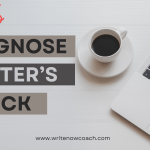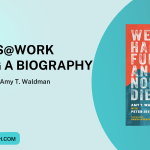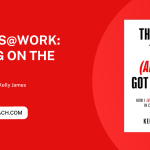Writers@Work: Setbacks and Successes
April 24, 2018
Note From Rochelle
Dear Readers,
Success. We all want it. But sometimes setbacks slow our progress, and we get discouraged.
Every writer faces challenges. Sometimes those setbacks come from outside of us—rejections from agents and editors or negative feedback from our first readers. At other times, we’re doing battle with our busy lives or ourselves, trying to write between work commitments or while our inner critic yammers at us.
I teach my clients to treat rejection, writer’s block, and other setbacks as information. When we know what works and what doesn’t work, we can develop a strategy for success. If you struggle with setbacks, connect with me for a complimentary consultation. Often a coach can help us see through the drama and find a solution that works.
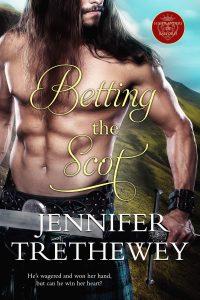 Speaking of setbacks and success, I am delighted to welcome Jennifer Trethewey to the blog. She’s the author of Tying the Scot and the just released Betting the Scot. Jennifer writes about her strategies for overcoming setbacks and achieving success.
Speaking of setbacks and success, I am delighted to welcome Jennifer Trethewey to the blog. She’s the author of Tying the Scot and the just released Betting the Scot. Jennifer writes about her strategies for overcoming setbacks and achieving success.
Enjoy!
Rochelle

Writers@Work:
Setbacks and Successes
By Jennifer Trethewey
Setting small, short-term, achievable goals has always been my writer’s career strategy. Every goal achieved I count as a success. Every setback I count as a success as well. Why? Because I choose to value the setbacks as much as the achievements. Because I learn from every setback and every setback leads to another mark of success on this bumpy journey.
Learning to receive criticism as something positive, as an opportunity to improve, is key. I remember the first time I received some seriously critical remarks about my writing. My reaction was startling. I was so angry, my skin burned all over. I stomped around the house thinking: that’s ridiculous; she doesn’t get me, of course I’ve established the external conflict, and on and on.
Once I calmed down, once I gave the criticism serious consideration, once I applied the notes to my writing, everything unfolded for me beautifully. My writing was elevated. From that experience, I learned that the more a criticism bothers me, the more I need to sit up and take notice. Because more often than not, the critical remark is pointing to something about which I already feel insecure.
Getting a rejection from a literary agent or publisher is hard, too. I don’t know anyone who is immune to the disappointment. Some come as a form letter with a vague “not the right fit” reason. Some come with no reason at all. I set those aside because there’s nothing to be learned from them.
But the rejections that come with something I can use, valuable feedback like, “didn’t reach the depth of emotion” or “characters need more development.” And when I hear the same thing from two or more readers, I pay attention. This is an insight into how agents and publishers perceive my writing. If I don’t address these issues, if I don’t make an adjustment to my writing, I’m only going to get more of the same. And I am indebted to those who bothered to give me that feedback because I never would have found an agent and a publisher without them. I should add that agents and publishers who send me rejections with specific reasons deserve a thank you note from me, too.
I’m currently learning to deal with less than flattering reviews. Fortunately, there have been far more favorable reviews than poor reviews. But the handful of bad ones still sting. I do read them, though. All of them. I don’t know why anyone wouldn’t. I read them carefully and glean whatever I can learn from both the good and bad reviews.
I continue my quest to learn from every source possible: other books in my genre, workshops, writing groups, craft books, blogs, online classes, rejections, reviews. I stay away from comparisons. That’s toxic. I don’t try to be better than anyone else. I just try to be better than my last novel. Which is all my publisher asks of me and all I expect from myself.
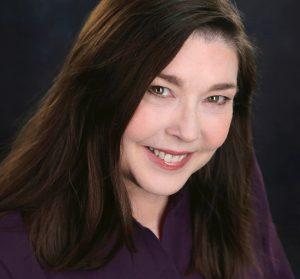 Jennifer Trethewey is an actor-turned-writer who has moved her performances from the stage to the page. In 2013, she traveled to Scotland for the first time, where she instantly fell for the language, humor, the intense sense of pride, and breathtaking landscape. Her love for Scotland is translated into her series of historical romance novels, the Highlanders of Balforss. The first two books in this sexy, adventurous series, Tying the Scot and Betting the Scot, are available on Amazon.com. Visit her web page and sign up for her Scot Curious newsletter.
Jennifer Trethewey is an actor-turned-writer who has moved her performances from the stage to the page. In 2013, she traveled to Scotland for the first time, where she instantly fell for the language, humor, the intense sense of pride, and breathtaking landscape. Her love for Scotland is translated into her series of historical romance novels, the Highlanders of Balforss. The first two books in this sexy, adventurous series, Tying the Scot and Betting the Scot, are available on Amazon.com. Visit her web page and sign up for her Scot Curious newsletter.



